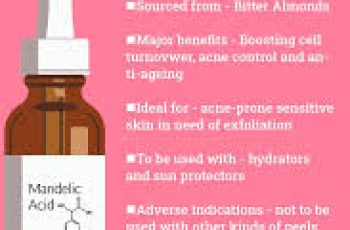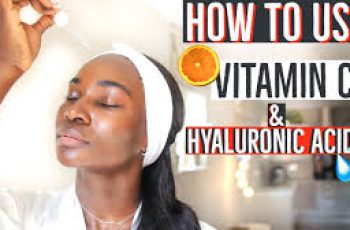
Psoriasis
Psoriasis is a skin disorder that causes the appearance of red, flaky, itchy patches of skin, usually covered with white scales. There are many manifestations of psoriasis from mild to severe. In the past, severe psoriasis was an incredibly difficult skin condition to manage with a great impact on self-esteem and quality of life. However, there are now very powerful psoriasis medications that are safe and work well. If you have severe psoriasis- we recommend that you find a dermatologist near you.
Look for a board-certified dermatologist at AAD.org
If you have mild psoriasis and you want to treat psoriasis at home, read on to learn more about psoriasis and some of the remedies available to ease this inflammatory skin condition.
When you have psoriasis its even more important to stop any kind of inflammation. Make sure your face routine is right your your skin type.
For personalized skin care advice on skincare for your face and how to choose the right product and brand – take the quiz to find out your Baumann Skin Type.
Why treating Psoriasis is important
Psoriasis causes skin inflammation which can increase the risk of many other diseases. This is why you do not want to leave your psoriasis untreated.
Getting anti-inflammatory ingredients in your skin care and diet can help, but most psoriasis suffers require topical creams such as the new biologics that treat psoriasis effectively.
Psoriasis can cause heart disease
Psoriasis isn’t just inflammation in the skin; it’s a systemic inflammatory disease. Scientists have discovered inflammatory biomarkers in the blood of psoriasis patients, like C-reactive protein and the platelet activation marker P-selectin, which correlate with the severity of the disease. (10-11)
Stdies using PET-CT scans have shown vascular inflammation in psoriasis patients, suggesting that the inflammation from psoriasis affects blood vessels, leading to inflammation within the vessel walls. This can lead to heart disease.
Another connection between psoriasis and cardiovascular diseases is through insulin resistance. Insulin resistance, commonly seen in diabetes, is a key component in cardiovascular disorders. Insulin plays a role in stimulating the production of nitric oxide in the endothelium, leading to vasodilation and improved glucose disposal in muscles. However, inflammation can disrupt this balance, leading to insulin resistance and reduced nitric oxide production, ultimately causing endothelial dysfunction. Notably, TNF-α, a major cytokine in chronic inflammatory diseases like psoriasis, opposes insulin’s effects.
Many of the inflammatory factors that are increased in psoriasis may contribute to the development of heart disease.
Psoriasis is linked to diabetes
While only a handful of studies have delved into the connection between psoriasis and diabetes, 2008 findings underscore this association. A cross-sectional study analyzed data from the Clalit Health Services (CHS) database, comparing patients diagnosed with psoriasis to those without. Among 16,851 patients with psoriasis and 74,987 without, a noticeable trend emerged: patients over the age of 35 with psoriasis had a significantly higher prevalence of diabetes. (14)
This data highlights the importance of reducing other health risk factors, such as smoking, high blood pressure, and high cholesterol to further protect overall health.
What is the Main Cause of Psoriasis?
Psoriasis is caused when something triggers the immune system. We don’t know exactly what causes this immune response, but stress, injury, certain medications and infections like strep throat can trigger it.
It may be possible that genetics also plays a role in psoriasis, but scientists have not been able to find any specific genes that cause psoriasis – and you may get it even if you do not have a family history.
Biologics to Treat Psoriasis
There are so many new good drugs to treat psoriasis. Make sure you check in with your dermatologist to see which are right for you.
Prescription medications to treat psoriasis:
Biologic Drugs (Injectable/Infusable):
Adalimumab (Humira)
Certolizumab Pegol (Cimzia)
Etanercept (Enbrel)
Golimumab (Simponi)
Infliximab (Remicade)
Ustekinumab (Stelara)
Secukinumab (Cosentyx)
Ixekizumab (Taltz)
Brodalumab (Siliq)
Guselkumab (Tremfya)
Risankizumab (Skyrizi
Tildrakizumab (Ilumya)
Please note that this is not an exhaustive list and new medications are developed and approved often.
Non-Biologic Treatments:
Topical Treatments (these are not biologics):
Calcipotriene (Dovonex)
Betamethasone dipropionate (Diprolene)
Tazarotene (Tazorac)
Calcitriol (Vectical)
Clobetasol (Temovate, Clobex)
Tacrolimus (Protopic)
Pimecrolimus (Elidel)
Oral Treatments (pills for psoriasis):
Methotrexate
Cyclosporine (Neoral, Gengraf, Sandimmune)
Acitretin (Soriatane)
Apremilast (Otezla)
Types of Psoriasis
There are seven different types of psoriasis, the most common of which is plaque psoriasis (also known as psoriasis vulgaris), which affects approximately 80-90% of people with psoriasis.
All 7 types have inflammation.
What’s the Difference Between Psoriasis and Eczema?
As mentioned, there are different kinds of psoriasis, but in general, psoriasis is a thick plaque that feels raised on the skin. The skin over the plaque is usually light pink and covered with silver scales.
Eczema, on the other hand, is usually a flat patch of skin that starts out dry and itchy. It can turn pink and become scaled, but the scales are not as thick as those seen in psoriasis. The best way to tell the difference in eczema versus psoriasis is where on the body it is located.
Psoriasis more commonly appears on the extensor part (the bony part) of the knees or elbows, while eczema appears in the crease behind the knees or elbows. Psoriasis is also common on the face, scalp and lower back. Eczema tends to appear behind the ears, on top of the hands or wrists, or around the ankles.
Does Diet Help Psoriasis?
Diet can absolutely have an impact on the appearance of your skin, and therefore the severity of your psoriasis. Anti-inflammatory foods like salmon, flaxseed oil and argan oil are ideal. The oils in salmon and flaxseed oil (particularly omega 3 fatty acids) are well-known to reduce inflammation and boost the immune system. Argan oil has antioxidant and anti-inflammatory properties that benefit the skin and aid wound healing.
Are There Any Home Remedies for Psoriasis?
If you search the internet, you’ll likely find dozens of examples of home remedies to ‘treat’ psoriasis, but unfortunately, none of them work. Psoriasis is a skin disease of the immune system, so it requires more targeted treatments with medicated psoriasis creams, psoriasis cleansers, or prescription medications.
However, milk compresses might help to ease the itch, and oils like argan oil and safflower oil can help dryness, but you need a psoriasis medication to actually treat psoriasis.
There are so many new, effective prescription medications available for psoriasis including oral medications, injectable medications, and topical psoriasis creams with steroids or Vitamin D. We highly recommend that you see your dermatologist.
The Gut Microbiome and Psoriasis
The gut microbiome, which refers to the diverse community of microorganisms living in the human digestive tract, has been found to be significantly altered in patients with psoriasis compared to healthy controls, reflecting a condition known as dysbiosis. At the phylum level, the majority of studies suggest that patients with psoriasis tend to have a lower relative abundance of Bacteroidetes and a higher relative abundance of Firmicutes, though some findings have reported the opposite trend. (14-16)
There are indications of decreased amounts of Proteobacteria in individuals with psoriasis, while studies regarding Actinobacteria have shown inconsistent results—increased in some cases and decreased in others.
At the family level, psoriasis is associated with an increased relative abundance of several bacterial families, including Ruminococcaceae, Lachnospiraceae, and Enterococcaceae, among others. Conversely, a number of families such as Prevotellaceae, Lactobacillaceae, and Streptococcaceae are less abundant in individuals with psoriasis. Notably, the findings for some families, like Bacteroidaceae and Veillonellaceae, have been conflicting across different studies.
At the genus level, specific bacterial genera, including Paraprevotella and Alistipes, are found to be decreased in patients with psoriasis, while genera like Ruminococcus and Blautia appear to be more prevalent. The evidence for certain genera, such as Bacteroides and Faecalibacterium, is divergent between studies.
At the species level, notable shifts have been observed as well; for example, Prevotella copri, Faecalibacterium prausnitzii, and Akkermiansia muciniphila were found to be significantly decreased in psoriatic patients, while Ruminococcus gnavus and Escherichia coli were among those found to be increased compared to the control group. (14)
This gut microbiome in psoriasis patients highlights the complex interplay between the skin and gut, reflecting the systemic nature of psoriasis as an inflammatory condition and suggesting a potential target for therapeutic intervention. More studies need to be done before we can know which probiotics can help make psoriasis better.
What are the Best Skin Care Products to Use for Psoriasis?
It is essential to follow your dermatologist’s recommendation on the best medications to use for your psoriasis because there are so many effective ones. But these psorisis treatent s should be combined wiht skin care to reduce inflammation.
Anti-inflammatory skin care ingredients can soothe psoriasis. You can learn more about psoriasis skincare such as cleansers, moisturizers, oils, and creams in our Psoriasis Skin Care Routine blog.
Our favorite natural treatment for psoriasis are oils with soothing fatty acids.


